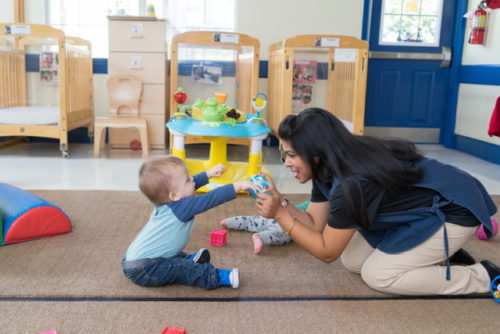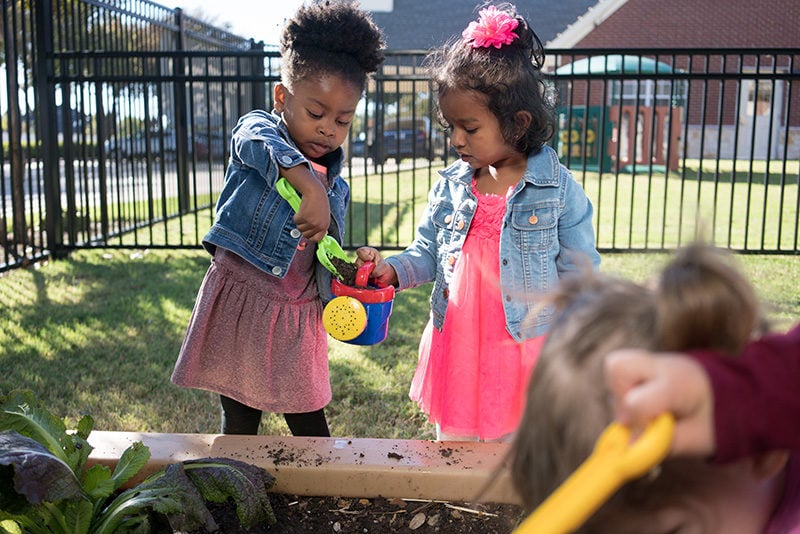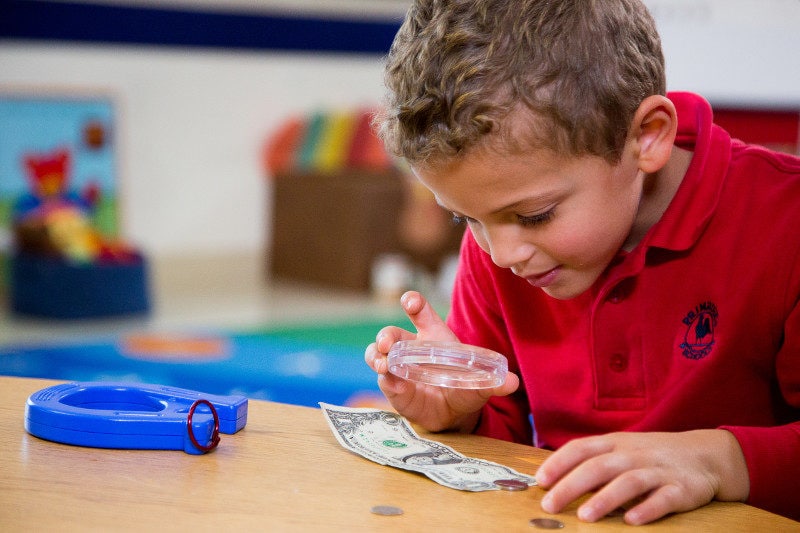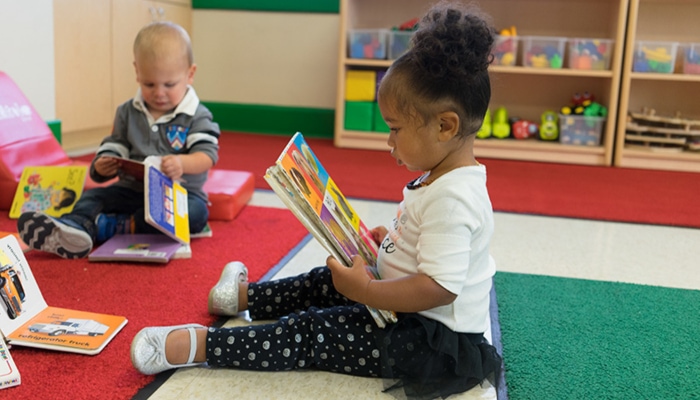By Guest Blogger Kim Lancaster, Franchise Owner Primrose School of Brassfield and New Irving Park
The brain develops faster in the first five years of life than at any other point, and studies show that the human brain is never more receptive than during this time period. Understanding a couple of key facts behind children’s brain development can help parents and caregivers better support a child’s learning during this critical time.
Dr. Laura Jana, a pediatrician, award-winning author and member of the Primrose Schools Early Learning Council, employs four key connections to help explain why the first five years are critical for children’s development:
- Connecting the Neurons. Babies are born with more than 100 billion nerve cells in their brains. These neurons must connect and communicate with each other in order to form the circuits needed to think, learn and succeed – something neurons do at the remarkable rate of 700 connections per second in the first five years of life. In fact, peak development of sensory pathways, such as hearing, vision and language, occurs during the first six months of life. Parents can make the most of this once-in-a-lifetime opportunity by nurturing their child’s natural desire to explore, asking meaningful questions, and creating as many learning experiences as possible!

- Making Connections with Caring, Responsive Adults. The everyday back-and-forth interactions adults have with babies – from babbling to singing, cooing and other responsive gestures – shape brain development far more than parents and caregivers may realize. Research from The Center on the Developing Child at Harvard University reveals that a strong relationship between a caring responsive adult and a child is so powerful, it can literally serve as a protective buffer against the potentially negative effects of stress and adversity on the developing brain. Start building this relationship with your infant by responding to his babbles, gestures or cries with the appropriate eye contact, words, or a hug. This supports the development of your little one’s communication and social skills.
- Connecting Language and Literacy Skills with Future Life Success. Reading and talking to young children is fundamentally important to their development. Betty Hart and Todd Risley, child psychologists at the University of Kansas, found in their landmark 1995 study that the frequency and quality of words spoken to children has significant implications on their vocabularies, IQ, literacy skills and future academic success. Parents don’t need to wait until their child can sit up, hold a book or even focus on the words to start reading together – the earlier, the better!

- Recognizing the Connection between Early Skills and Workforce Development. All parents strive to raise happy, successful children, but over time certain skills have become more relevant for success in today’s workforce. Instead of focusing solely on academic success, parents, caregivers and early educators are also focusing on instilling essential traits and skills like grit, perseverance, compassion and problem-solving. Early childhood is when the foundation for these attributes is built and nurtured. Modeling these skills and traits is one of the best ways parents can help their child develop them.
The first five years of a child’s life are special for many reasons. Recognizing the rapid development that takes place during this critical stage and fostering the above connections will help ensure your little one gets the most out of this once-in-a-lifetime learning opportunity!

To learn about Primrose School Brassfield or New Irving Park, visit PrimroseBrassfield.com or PrimroseNewIrvingPark.com. You may also call to speak with a member of our Leadership Team at 336.286.0500 or 336.286.8889. For more helpful parenting tips and information, visit our blog at www.PrimroseSchools.com/blog and sign up for the Pointers for Parents newsletter.

- Sponsored by Primrose School of Brassfield and New Irving Park
















